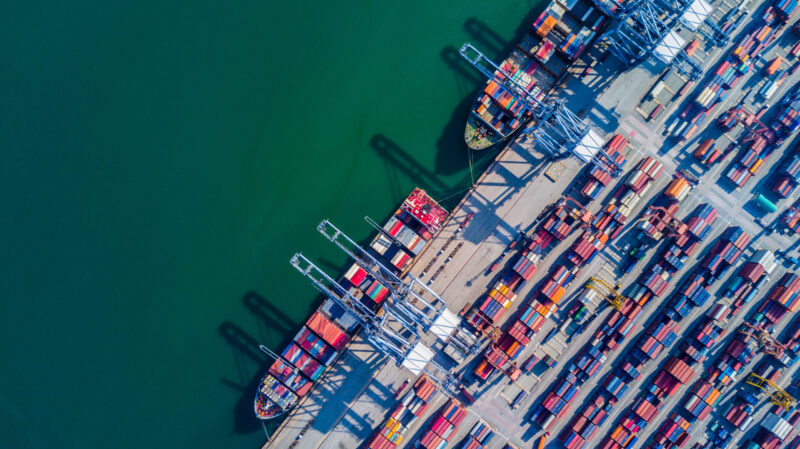
This site
is mobile
responsive
International trade has not been spared by the disruptive effects of the COVID-19 pandemic. In May 2020, Malaysia registered a decline of 25.8% for exports whilst imports dropped by 29.5% year-on-year. However, the gradual global demand recovery from the second half of 2020 has seen Malaysia’s external trade performing well. One of the vital sectors that contributed to this recovery is the commitment of maritime transport. Maritime transport is prominent in Malaysia because approximately 98% of Malaysian trade is carried by sea.
Nevertheless, the pandemic revealed underlying factors affecting the efficiency of port operations. Among them, it was identified that port operators have not been fully utilising available technologies to maximise efficiency and productivity that could contribute to reducing cost. As a result, operations are not streamlined, and the exchange of data along the supply chain is not smooth
In accelerating international trade, the Government plays a significant role in ensuring growth. The Twelfth Malaysia Plan, 2021-2025 (12MP) features ‘transforming the logistics ecosystem for greater efficiency’ as one of the gamechangers. Digitalisation across the maritime supply chain via integration of Industrial Revolution (IR) 4.0 elements are among the strategies that can bring many benefits to the sector.
A more efficient ecosystem could be achieved by streamlining operations and facilitating a faster and more accurate data exchange throughout the whole supply chain. There would be minimal need for human interaction, thus reducing human error. In the long term, the digital transition in this sector could lead to an increase in international trade growth.
The digitalisation of the maritime supply chain also comes at an opportune period as the ecommerce rise is at its peak due to in-person restrictions during the pandemic. In addition, port capacity needs to be expanded and improved to take advantage of the current situation to manage a larger container handling capacity. As an ever-growing transhipment base in ASEAN, Malaysia is reviewing strategic plans to expand and upgrade its ports to maintain its competitiveness in the region.
Through various agencies and platforms, the Government continues to assist and provide support to this sector through fiscal and non-fiscal incentives. More importantly, the Government recognises the role of industry players to grow the maritime transport segment towards a more inclusive and mutually beneficial business environment as the essential gateway to international trade, ports and transport services need to be digitalised further and elevated to accelerate Malaysia’s global trade. Higher implementation of technologies translates to sustainable outcomes such as greener ports or terminals, consumption of low carbon fuels and predictive alerts that can reduce error and save time. MIDA advocates the adoption of advanced technologies and is ever ready to support local and international maritime industry players.
For more information, forward your enquiries to MIDA’s Oil and Gas, Maritime and Logistics Services Division or visit www.mida.gov.my
